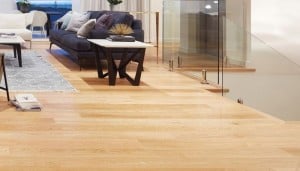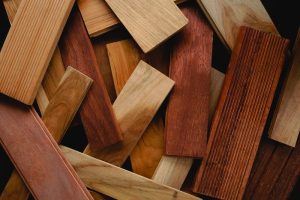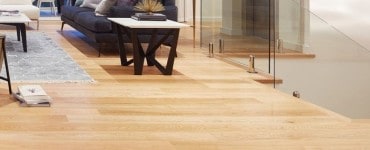Bamboo floors are a popular choice for many homeowners because of their water-resistant properties. However, it’s important to note that while bamboo floors are more resistant to water than hardwood floors, they are not completely waterproof.
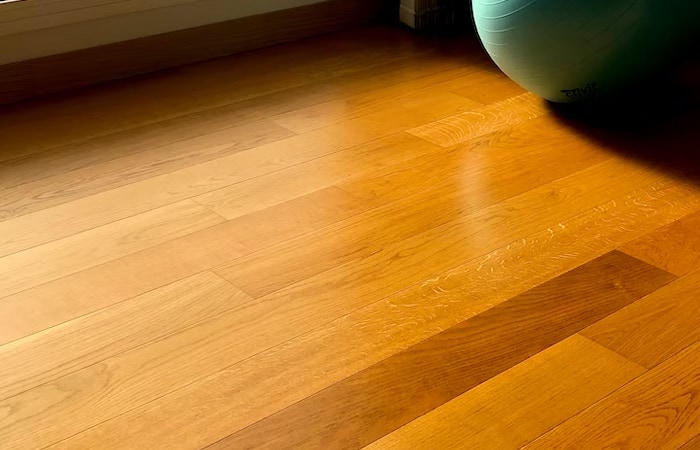
If you have bamboo flooring in your home, it’s important to take precautions to protect it from water damage. For example, you should avoid walking on your bamboo floors with wet shoes or allowing standing water to pool on the surface. If you do get water on your bamboo floors, be sure to dry it up as soon as possible to prevent any damage.
With proper care and maintenance, your bamboo floors should last for many years. However, if they do become damaged by water, they may need to be replaced sooner than expected.
Difference Between Water-Resistant vs Waterproof
There is a big difference between water-resistant and waterproof. Water-resistant means that the product can resist some water, but it is not completely waterproof. Waterproof means that the product is completely impervious to water.
Water-resistant products are often made of water-repellent materials, such as Gore-Tex. These materials allow some water to pass through, but they prevent the user from getting wet. Waterproof products are made of waterproof materials, such as neoprene. These materials do not allow any water to pass through them, keeping the user dry.
Water-resistant products are good for light rain or for use in humid conditions. They will keep you dry in a light shower, but they will not keep you dry if you are submerged in water.
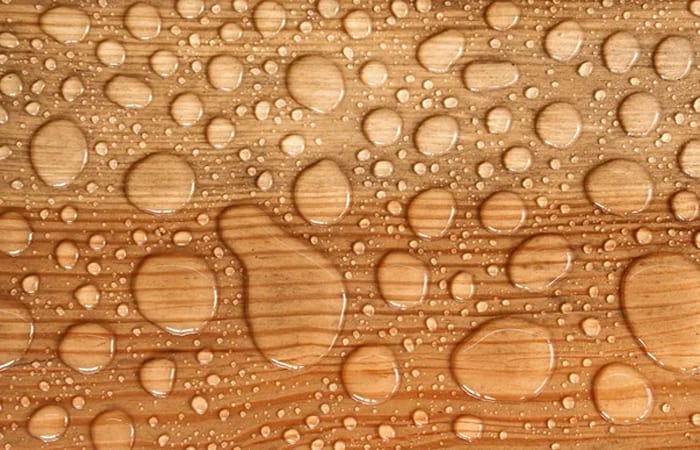
What Happens when Bamboo Floor Gets Wet?
Bamboo flooring is a popular choice for many homeowners because of its beauty and durability. However, like any type of flooring, bamboo can be damaged if it gets wet. Here’s what you need to know about what happens when bamboo floor gets wet and how to protect your investment.
When bamboo flooring gets wet, the water can cause the boards to swell and warp. This can lead to gaps between the boards and eventually cause the floors to come apart. In addition, water can also stain bamboo floors, leaving them with a permanent discoloration.
To protect your bamboo floors from water damage, it’s important to wipe up any spills immediately and avoid walking on the floors with wet shoes or clothes. You should also avoid mopping the floors with too much water as this can also cause damage.
Can Bamboo Be Waterproofed?
Yes, bamboo can be waterproofed. There are several ways to do this, but the most common is to treat the bamboo with a water-repellent sealer. This will help to protect the bamboo from water damage and will also make it more durable. There are a few things to keep in mind when waterproofing bamboo, such as making sure that the sealer is compatible with the type of bamboo you have, and that you apply it correctly.
Can Bamboo Floors Mold?
Mold can form on bamboo floors if they are not properly cared for. Bamboo is a type of grass that is highly absorbent, so it can easily become waterlogged. This can lead to the growth of mold and mildew, which can damage the flooring. To prevent this, it is important to keep bamboo floors dry and free of moisture.


